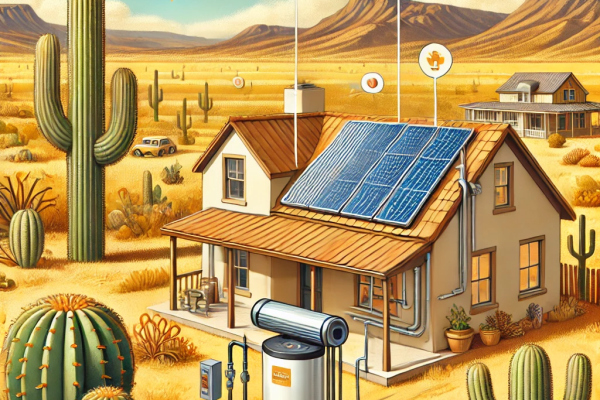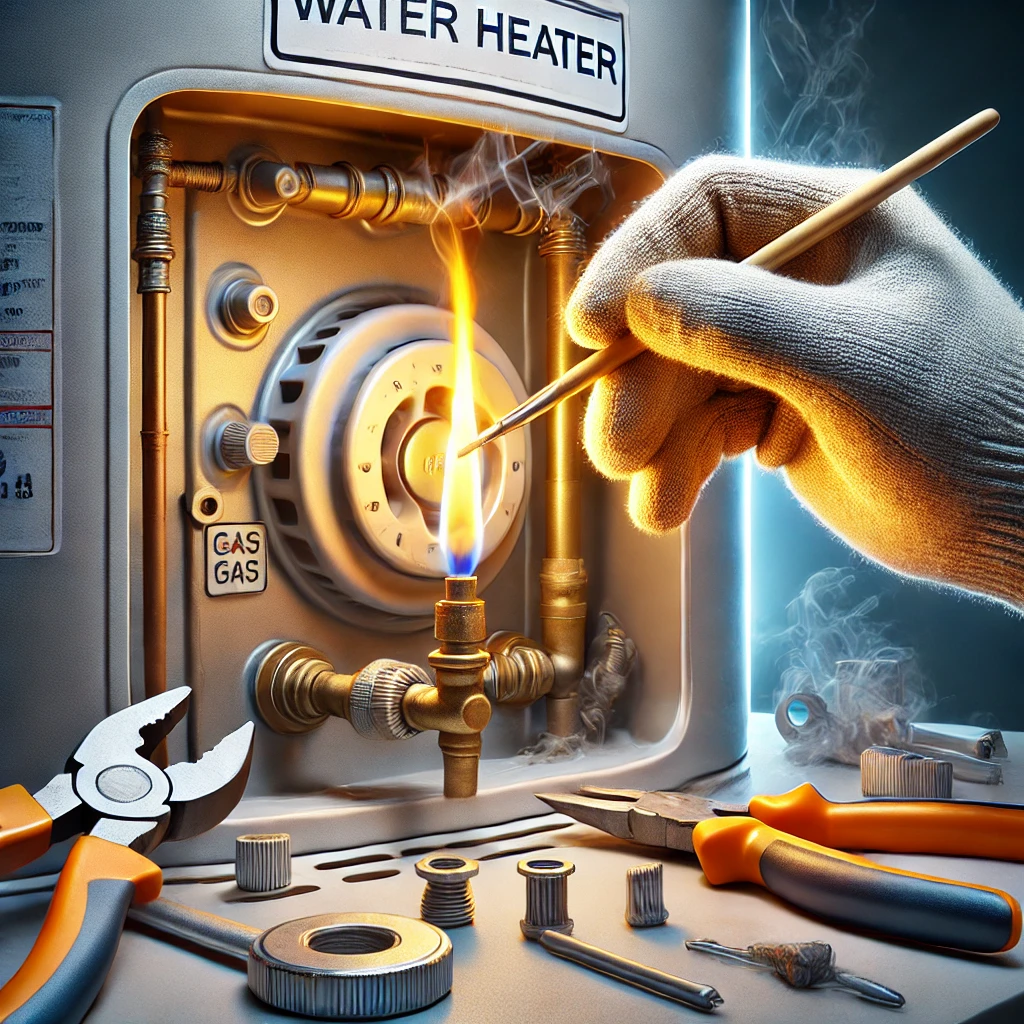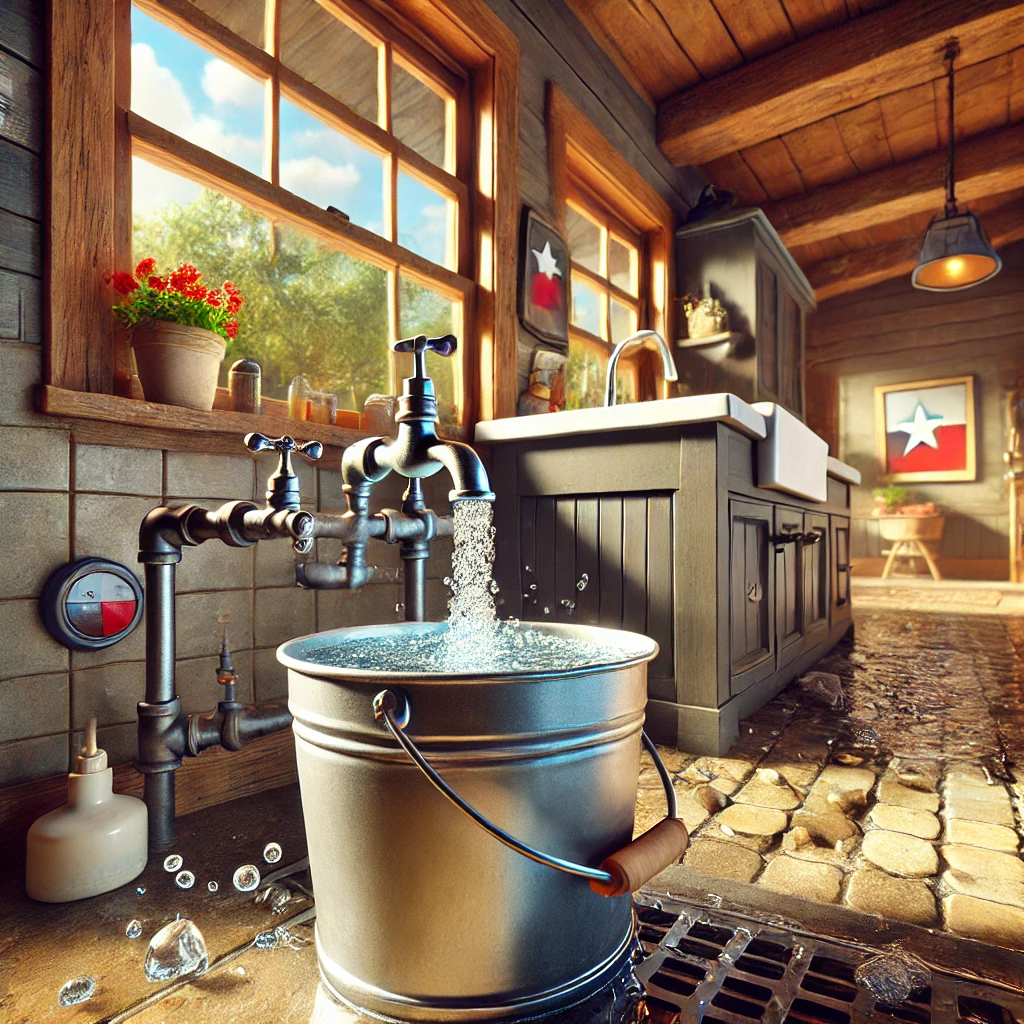
How to Choose the Perfect Water Heater for Your Home in Hot Regions of Texas: Expert Tips
Living in one of the hotter regions of Texas means dealing with the unique challenges that come with extreme heat. With temperatures regularly soaring above 100°F (38°C), ensuring a comfortable and efficient hot water supply is crucial. In such climates, selecting the right water heater is not just a matter of comfort, but an essential part of maintaining your home's overall efficiency.
In this guide, we will explore various types of water heaters, their advantages and disadvantages, and provide you with expert tips on how to choose the most appropriate model for your home, considering the specific climate conditions of Texas.
1. Key Considerations When Choosing a Water Heater for Your Home in Texas
The Impact of Hot Texas Climates on Water Heater Selection
Choosing a water heater in Texas requires understanding the nuances of the local climate. The intense heat and frequent power surges, which can affect appliances, influence the performance of water heaters. Homeowners should consider several key factors to ensure the heater will work efficiently without causing unnecessary strain on the electricity bill or resources.
Energy Efficiency: Saving on High Summer Bills
In Texas, electricity costs can skyrocket, particularly in the summer months when air conditioning usage peaks. As such, selecting a water heater with high energy efficiency is critical. Energy-efficient models, such as solar water heaters or heat pump water heaters, use alternative energy sources that can help reduce utility bills over time.
Type of Energy Source: Embracing Solar and Heat Pump Technologies
Given the abundant sunshine in Texas, homeowners in hot regions should consider solar water heaters, which can significantly reduce dependence on conventional energy sources. Additionally, heat pump water heaters can provide an energy-efficient solution by utilizing ambient air to heat water. These options are not only eco-friendly but also cost-effective in the long run.
Size and Capacity: Matching Your Household Needs
While the demand for hot water may be lower in hotter climates compared to cooler regions, the size and capacity of the water heater should still match the needs of your home. Larger homes with multiple bathrooms or larger families may require a bigger water heater to meet demand, even in hot climates.
2. Exploring Different Types of Water Heaters
Understanding the various types of water heaters available will help you make an informed choice based on your household's needs and energy preferences. Below, we explore the most popular types of water heaters suitable for Texas' hot regions.
2.1. Gas Water Heaters
Gas water heaters are among the most traditional types of water heating systems. They are known for their ability to heat water quickly, which makes them a reliable option for large homes with high hot water demand.
Advantages:
- Quick Heating: Perfect for households with large families or multiple bathrooms where hot water demand is high.
- Cost-Effective: If your home is already using natural gas for heating, you may save on operating costs.
- Efficient for Larger Homes: Ideal for homes that consume large amounts of hot water.
Disadvantages:
- Installation Complexity: Gas heaters require proper venting, which can be cumbersome in small spaces, especially in hotter climates where every inch of space counts.
- Higher Installation Costs: Gas models typically cost more to install than electric versions.
- Limited Efficiency in Hot Climates: In areas like Texas, where the need for hot water can be reduced, gas water heaters may not be the most efficient option.
2.2. Electric Water Heaters
Electric water heaters are a popular choice in Texas due to their simplicity and ease of installation. They don’t require additional venting, which can save on space—an important consideration in hot, space-limited regions.
Advantages:
- Ease of Installation: Electric water heaters are straightforward to install and generally cost less.
- No Venting Required: This makes them ideal for homes with limited space.
- Affordable Option for Small to Medium Homes: They are suitable for homes with lower hot water needs.
Disadvantages:
- Higher Operating Costs: If your electricity rates are high, electric heaters can be more expensive to run, especially in the summer months.
- Less Suitable for Larger Households: If your home has high hot water demand, electric heaters may not be the best fit.
2.3. Solar Water Heaters
In a state known for its abundant sunshine, solar water heaters are a natural fit for Texas homeowners. These systems capture solar energy and convert it into heat to warm water. In hot Texas regions, where sunny days are frequent, solar water heaters offer an eco-friendly and highly cost-effective solution.
Advantages:
- Eco-Friendly: Solar water heaters produce no emissions, making them an excellent choice for those looking to reduce their carbon footprint.
- Significant Savings: Once installed, operating costs are minimal, and solar water heaters can greatly reduce monthly energy bills.
- Ideal for Hot Climates: Solar heaters are perfect for regions with long, sunny days, making them ideal for Texas.
Disadvantages:
- High Initial Installation Costs: While solar water heaters offer long-term savings, the upfront cost of installation can be significant.
- Weather-Dependent Efficiency: Solar heaters are less efficient on cloudy or rainy days, which may be a concern in certain areas of Texas that experience overcast weather.
2.4. Heat Pump Water Heaters
Heat pump water heaters operate by extracting heat from the surrounding air to heat water. In hot climates like Texas, they can be highly effective. Not only do they save on electricity, but they can also help cool your home as they operate by transferring heat from the air.
Advantages:
- High Energy Efficiency: Heat pump water heaters are highly efficient, utilizing ambient air to heat the water rather than electricity or gas.
- Dual Functionality: Some models can also function as air conditioners, cooling your home while heating the water.
- Ideal for Hot Climates: They are especially well-suited for areas with high air temperatures.
Disadvantages:
- Installation Costs: These systems tend to be more expensive to install than traditional water heaters.
- Space Requirements: Heat pump water heaters require additional space for operation, which may be challenging for homes with limited room.
3. How to Choose the Right Water Heater for Your Home in Texas?
Selecting the perfect water heater for your home in Texas is a multi-step process that requires careful consideration of various factors. Below are some steps to help you make the best decision.
Assess Your Home’s Hot Water Needs
Before purchasing a water heater, assess how much hot water your household consumes. Key considerations include the number of family members, the number of bathrooms, the use of appliances such as washing machines and dishwashers, and the frequency of hot water use. For larger homes or households with multiple bathrooms, a water heater with a higher capacity may be required.
Consider the Local Climate
In hot regions of Texas, traditional water heaters that run on gas or electricity may not be the most efficient options. Solar and heat pump water heaters, which use natural energy sources, may be better choices. These models are designed to handle the hot and sunny Texas climate while reducing your dependency on traditional energy grids.
Plan for Installation
It is wise to plan your water heater installation before an emergency arises. By installing your system ahead of time, you can avoid costly repairs during the peak summer months when water heaters are under the most strain. Timely installation ensures that you will have a reliable hot water supply, regardless of external conditions.
4. Frequently Asked Questions
How often should I service my water heater?
Regular maintenance is key to extending the lifespan and maintaining the efficiency of your water heater. It is recommended to service your water heater at least once a year, including inspecting it for leaks and cleaning any sediment build-up.
What should I do if my water heater stops working?
If your water heater stops working, it could be due to a variety of issues such as a malfunctioning thermostat or a leak. Contact a professional plumber to assess the problem and perform the necessary repairs to restore hot water to your home.
Which water heaters are best for the hot climate of Texas?
For homeowners in hot regions of Texas, solar water heaters and heat pump water heaters are the best options. These systems rely on renewable energy sources and can save you significant money over time while reducing your carbon footprint.
Conclusion
Choosing the right water heater for your Texas home requires understanding both your household's needs and the specific climate challenges of living in hot regions. By carefully considering factors like energy efficiency, system type, and capacity, you can select a water heater that will deliver comfort and savings for years to come. Whether you choose solar, heat pump, or another type of water heater, the right choice will ensure your home stays comfortable even in the hottest months of the year.






